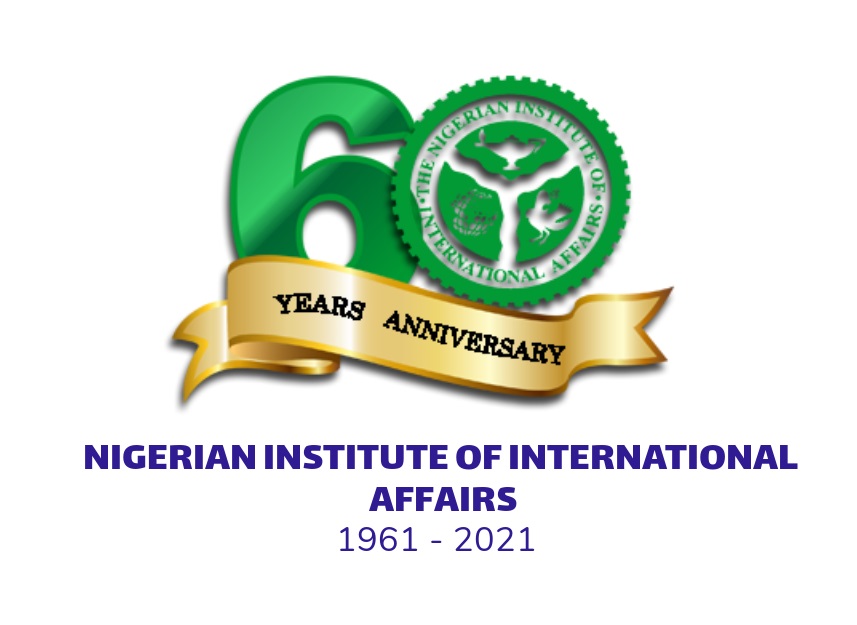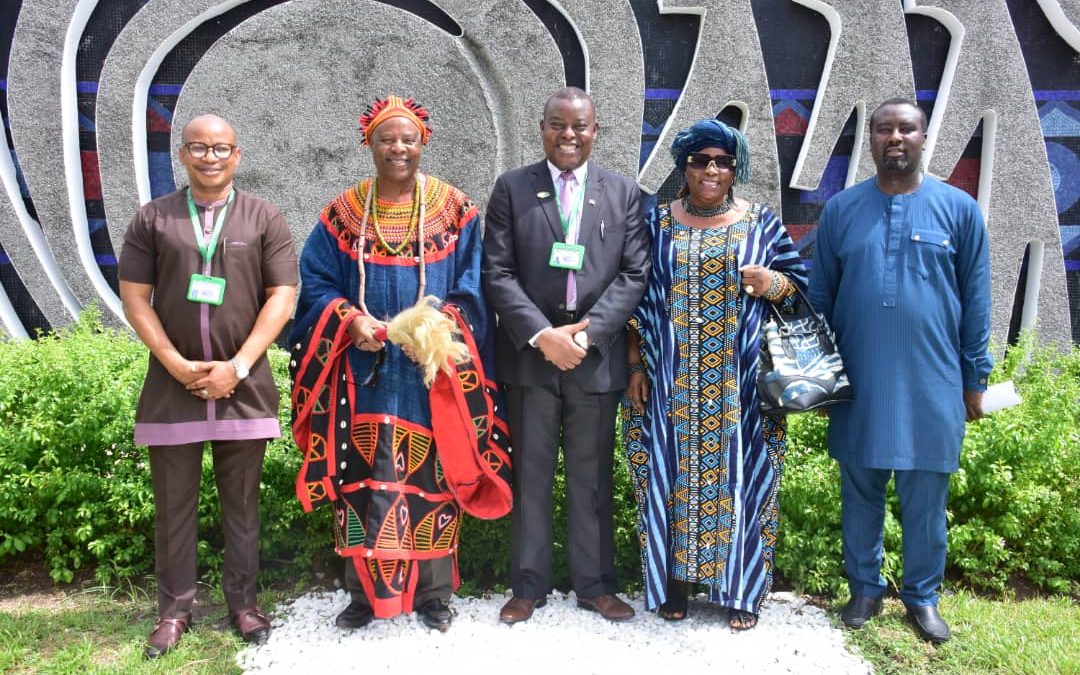A REPORT ON THE PRESENTATION TITLED:
‘SELF-DETERMINATION AND SECESSIONISM IN POST-COLONIAL STATES: REFLECTIONS ON POSSIBLE SOLUTIONS FROM PEACE AND CONFLICT STUDIES’
BY
Fonkem Achankeng, PhD
The Nyatema of Atoabechied
Professor, University of Wisconsin, Oshkosh, USA
HELD ON MARCH 22, 2023
@
The Nigerian Institute for International Affairs (NIIA)
Lagos, Nigeria
INTRODUCTION
As the post-colonial societies were put together by foreign powers for their interests without consideration of the Incompatibility Theory of Plural States, it became obvious that self-determination conflicts are by no means an ephemeral nuisance in any society given the quest for self-determination and secessionism that continue to linger. Understanding the origins, patterns, and possible outcomes of self-determination and secessionist conflicts is indispensable for developing the concepts and means to reduce or resolve the conflict. Amidst several questions such as granting self-determination wherever it is demanded, insisting on democratic governance, or training benevolent dictators to assume the states – to resolve the demand of secessionism and self-determination, several options were equally put forward. In this presentation thus, an attempt is made at the re-examination of the concept of colonialism, establishing a linkage between the epoch, independence and post-independence quest for self-determination and secessionism. It also analysis the various levels of conflict resolution and the framework usually adopted and climaxed with proposed solutions.
QUEST FOR SELF-DETERMINATION AND SECESSIONISM
The question of self-determination and secessionism continues to linger, long after the independence of many erstwhile colonized states. This is largely attributable to the state creation made by the colonizers on the consideration only of their economic interests without recourse to the incompatibility theory of plural states. Self-determination and secessionism has been rife in many parts of Africa hinged on uneven distribution of wealth, non-participation at the centre, and marginalization. South Sudan, Western Sahara, Eritrea, Namibia, and Ambazonia to mention a few are states that exemplify this attribute. But this notion, is also, not true of many developed societies such as Catalonia, Quebec, Scotland, etc, and many which though, advanced economically and politically, still quest for secession, only to express their freedom and separate identity. To such, economic concession and political participation alone do not suffice. The agitation for secession and self-determination more often finds expression through violence and conflict. It is therefore important to understand the origins, patterns, and possible outcomes of self-determination and secessionist conflicts in a bid to develop required frameworks to address them.
MECHANISMS ADOPTED FOR ADDRESSING SELF-DETERMINATION AGITATION
Conflict resolution may be attempted through, first, policy or process adjustments within an existing system of structures; second, adjustments to structures within a system; and lastly, change of the system itself. However, an effective evaluation of the context need be carried out to determine which of peace-keeping, peace-making or peace building operations should be implemented. This involves the use of military, political or socio-economic activity, respectively, in stemming conflict.
There are various options involved in addressing issues of self-determination and secession conflict in Africa and other parts of the world. These include the use of violence, good governance principle, imposition of new institutions, consociationalism, political intervention by the international community, intervention by international community to change entire systems, and lastly, separate identity, independence or sovereignty. The application of each option is dependent on the circumstantial peculiarity. The use of violence to suppress demand for self-determination and succession is incompatible with fundamental human right but was widely used by the colonizers. It was nevertheless resisted by the colonized and still being resisted in the post-colonial neocolonial conflict for the control of power. This is largely peculiar to Africa and Asian states. Good governance principle explores the role of fairness, transparency, and accountability under the rule of law as a therapy for the numerous agitations, conflicts and quest for self-determination. New institutions such as democracy were equally introduced to disparage secession, but fostering a spirit that would make them work at their best has been challenging. This makes such institutions less productive as expected. Consociationalism in a plural society engenders participation in governance of various national interests but this also has failed in preventing agitation for self-rule in many parts of the world. Considering the unique status of nation-states in international affairs as the authoritative actors within the political arena, political intervention by the international community is usually made to mediate a peaceful settlement between agitators of self-determination and the state. Given the imperial nature of the international system, intervention by the world community to change entire system in territories desirous of self-determination has occasionally stalled process towards achieving such goals thereby leaving those areas annexed to other independent states in complete denial of self-determinism. Lastly, based on the provision enshrined in the Article 2 of the United Nations that peoples have the right to self-determination and that by virtue of the right, they can freely determine their political status and pursue their economic, social and cultural development, many states have pressed for their separate identity, independence and sovereignty until it was conferred.
CONCLUSION
The desire of a people to rule themselves and to control their own lives is an essential component of human existence. This is expressed through self-determination and secession. The agitation for this desire of a people from those who suppress these rights have been met with resistance taking the form of violence. States which seek to prevent secession and self-determination have usually upscaled efforts to prevent breakaways through good governance, introduction of institutions, consociationalism, international political intervention, etc. But in spite of all these arrangements and mechanisms put forward, some nationals still seek to secede. This explains why freedom is an innate and inalienable part of man and that the conflict that ensues thereby is not only about sharing in the power and economics of the state, but rather, centres on self-determination as a fundamental right and need of a people or nation.
RECOMMENDATION
Independence and self-determination should be granted to nations or peoples desirous of it such s the Catalonians, the Scots, the Ambazaonians, the Quebecs, etc
Good governance should be improved in states where agitation is fueled as a result of neglect.
Consociationalism should be adopted in very plural states to ensure even participation of all.
The use of violence should be stemmed while dialogue is encouraged between those seeking self-determination and the state.
The international community should not forcefully suppress the will and desire for independence or self-determination of the people.
New institutions created should be allowed to operate to their fullest capacity.
Attempts to change the entire system by merging two independent states together should be with the consent of both states.




